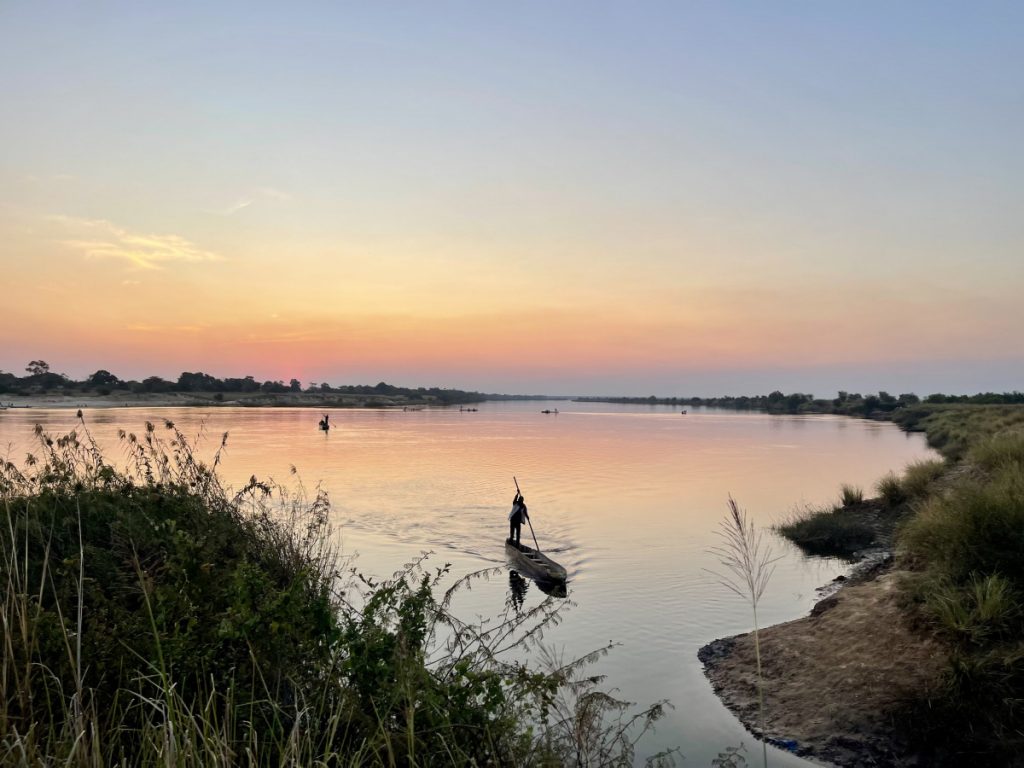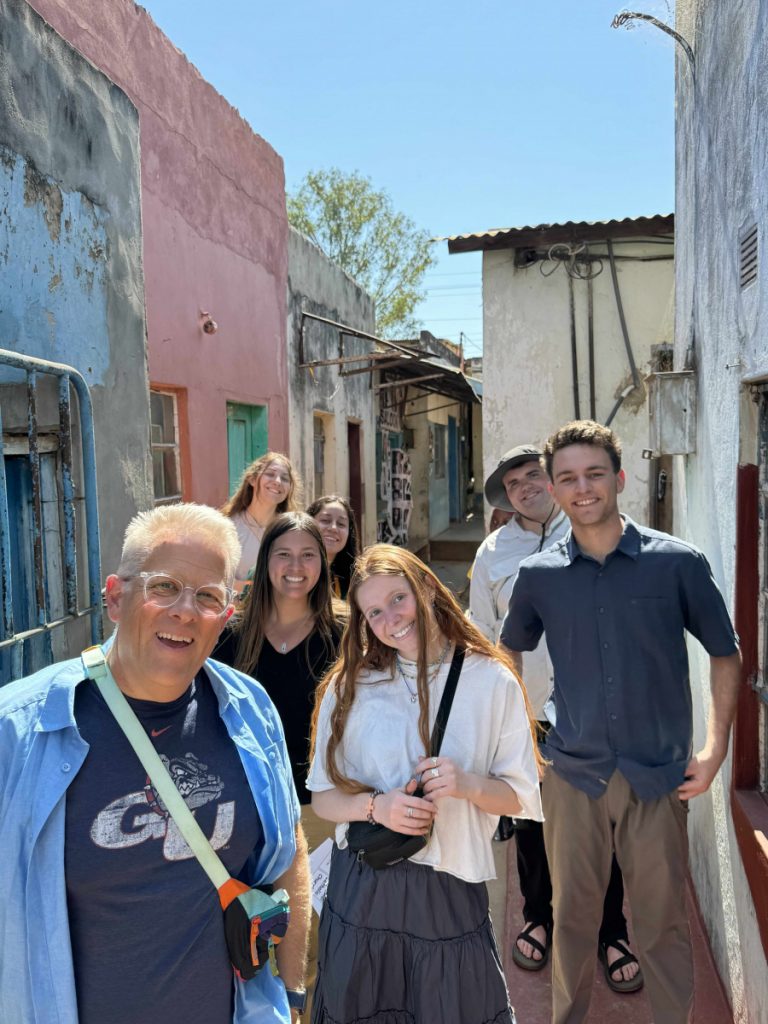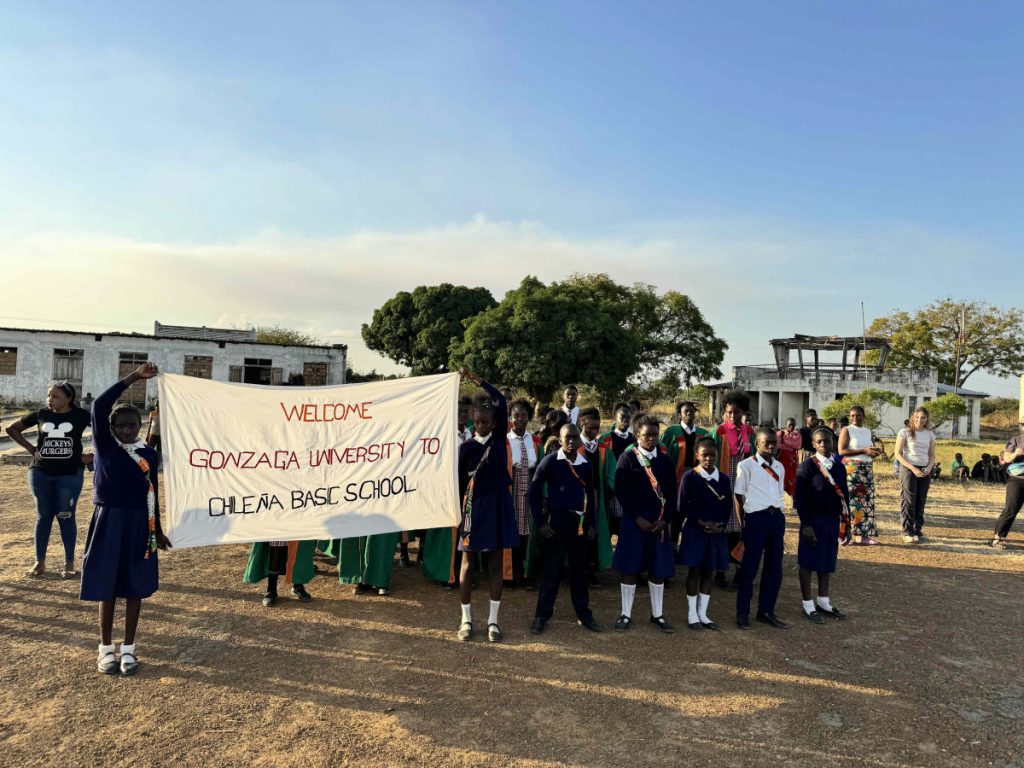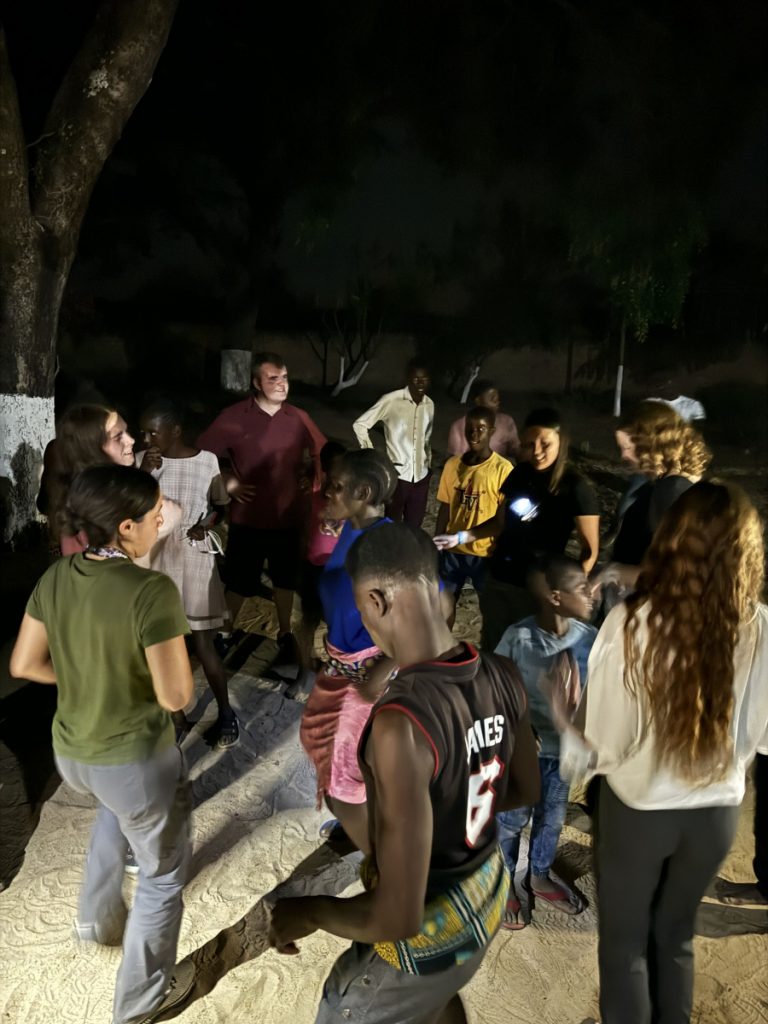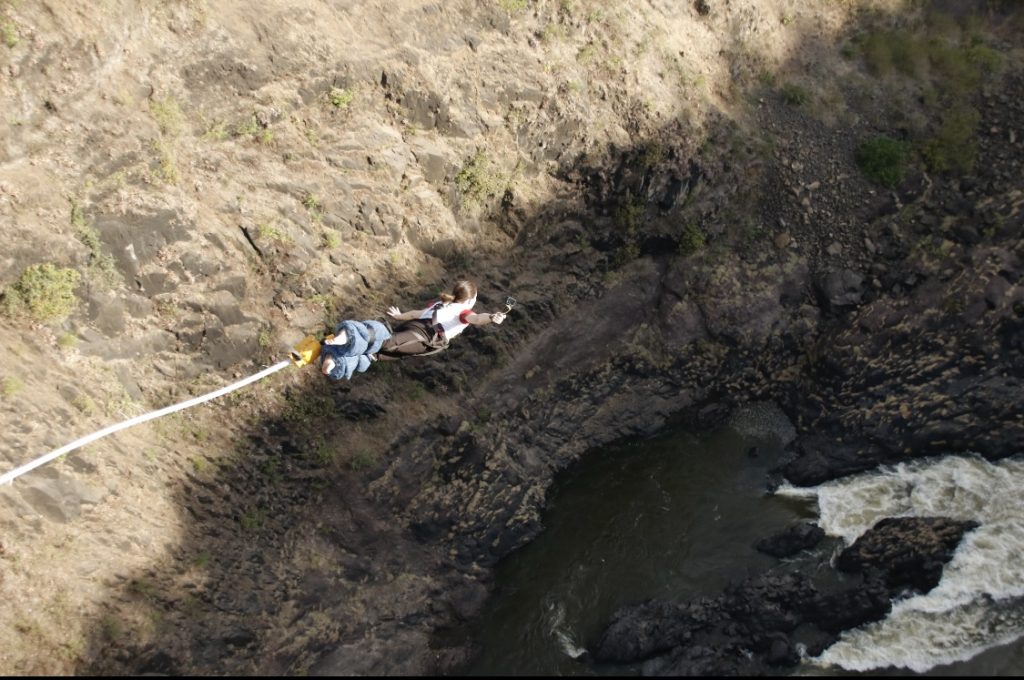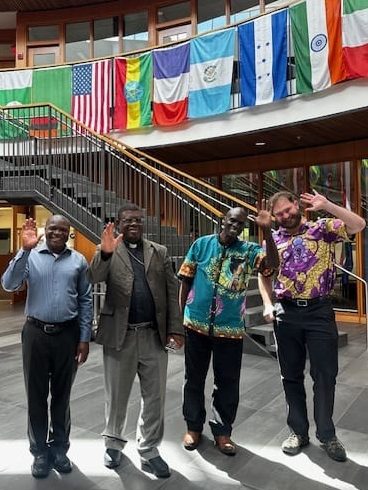
Greetings from the convent common room. About half our team are huddled around in small clutches, debriefing their days and planning for tomorrow. The sun will set in about an hour, and then we’ll enjoy a delicious meal prepared by the Mamas, Katendi and Christine, and today’s assistant, Ellie. Katendi just appeared with a tray of her delicious popcorn, an afternoon snack we didn’t expect but is perfectly indicative of the ways Katendi has cared for Zags over the last seventeen years.
I’m munching on this popcorn while writing to you from nine hours in the future. But I wasn’t supposed to be here. This was my year off from Zambia, after leading last year’s trip and slated for the next two years.
A week ago today, I was sitting in the office of Gonzaga’s Center for Global Engagement (CGE) making nametags for a luncheon to be held in honor of a visit to campus by Rt. Rev. Charles Kasonde, the Bishop of the Diocese of Solwezi. I had been part of a group that morning who welcomed at the Spokane airport, and I was taking care of a few tasks related to his visit. The luncheon I’d planned alongside the CGE team would include several administrators and would feature comments from a former Zag who came to Zambezi in 2022. Through the steadfast work Josh Armstrong had done, Gonzaga was hosting two priests from the Diocese of Solwezi—Fr. Max Mwelwa and Fr. Roy Sangonga—to pursue a Master’s degree in teaching English to Speakers of Other Languages. The Bishop wanted to see how his priests were fairing and to learn more about Gonzaga.
Our hope was to celebrate the Bishop’s visit and affirm the long and mutually beneficial relationship this program has had with the Diocese. Relationships matter, after all. And, for relationships, sometimes nameplates matter.
The photo above is of the Bishop, Fr. Roy on the left, Fr. Max on the right, and Blaine Atkins (Zambezi ’22). But I wasn’t there for it. While folding those nameplates, our Director of Study Abroad, Dr. Moira Rogers, stepped out of her office and said to me, “Oh, Jeff, you are here. Would you like to go to Zambia?”
I had just heard that our proposal for next year’s trip was approved, so I thought she was making a subtle joke about that, and I must have muttered something like, “Ha! Well I am already planning to go next year.”
“I just got a call from Josh, and Chris is hurt.” She didn’t have much information but was already working through a plan to care for our colleague and the students she was serving and teaching here. “We’ll need to figure something out?”
I called my wife at work and explained the situation, asking how big a disruption it would cause for me to join this crew if Chris wasn’t able to continue. Within an hour, it was confirmed that Chris would need to be stabilized and ultimately transported to a hospital in South Africa. I had a ticket on the next day’s flight to Lusaka. And, my colleagues would continue the work of welcoming Bishop Kasonde to Spokane.
Last year, I was sitting in the convent when a student walked in and informed that a family member had experienced a life-threatening accident and that she had to return home as quickly as possible.
As those of you reading at home have probably gleaned, and those of you who’ve been here know, nothing about getting to or from Zambezi is normally “quick.” We are 500 kilometers from the nearest airport: a ten-hour bus ride. That’s just to the nearest airport, which was another 600 kilometers from Lusaka, which itself is 24 hours of flight time, plus additional layovers, from Spokane.
I immediately initiated our emergency protocols and Katuska Kohut, the Associate Director of Study Abroad, helped organize flights for our student from Lusaka for two days later.
Now we had to get her to Lusaka. For a regular Zambian, that would 22 hours on a bus, with a layover sleeping in the Solwezi bus station. While I don’t for a second believe any of us deserves to be treated better than the Zambians who welcome us with such radical hospitality, I knew my student couldn’t expect to make that type of journey alone.
I walked over to Fr. David Phiri, the parish priest here at Our Lady of Fatima. We called Fr. Yona Chipango, the Pastoral Coordinator for the Diocese and the former parish priest here in Zambezi. Together, we hatched a plan. A seminarian here would accompany our student on the bus to Solwezi. She would be put up in the Diocese guest house. The following morning, Fr. Yona would take her to the Solwezi airport, where she could arrange a flight to Lusaka in time to depart for Qatar and then Seattle.
The care extended to our student in her time of grief and need struck me. We talk about accompaniment in this program as though it’s a posture we adopt in relation to the Zambians we meet. In that moment last year, it was clear that these men in the diocese were practicing accompaniment in their own way.
Two weeks ago, as I write this, your Zags left Seattle. When they arrived in Lusaka , they were welcomed by Dominic Mizhi Sandu. Dominic was the parish priest in Zambezi in the years surrounding 2010, and has annually welcomed our team since his relocation to Lusaka. He even received sponsorship to come to Gonzaga for three weeks in 2009 to teach and was featured in our Leadership Fishbowl series. As you’ll have seen from students’ posts, Dominic is full of wisdom, wit, and care for our students. He’s a full partner in the educational mission of our program, and this year was instrumental in supporting the team while Dr. Sloan navigated the Zambian healthcare system in Livingstone.
Six years ago, I brought our group of Zags to Zambezi, where we were greeted by a new parish priest, Fr. Yona Chipango. That first weekend in Zambezi, the youth group at Our Lady of Fatima hosted a dance party for us, and I came to know Fr. Yona as a serious-minded, fun-loving, and deeply caring man who was visionary in transforming the parish in service to its parishioners. He’s a slight man with an explosive laugh, the kind that toes the line between being mildly embarrassing and highly contagious. By the Fall of 2019, Josh had worked with The Ministry Institute, an affiliate organization of the Spokane Diocese and Gonzaga, and our graduate admissions team to bring Fr. Chipango to Spokane to pursue a Master’s degree. Though he was forced to complete that degree back here in Zambia after the Covid pandemic forced us to go remote, Fr. Yona had almost a year to become a Zag.
Seven years ago, Fr. David Phiri had been hosted by The Ministry Institute. He was taking a sabbatical year between parish postings here in North-Western Zambia. He connected with Josh and got to know the Zags who were traveling here at the time. Two years after returning from sabbatical, Fr. Phiri was posted to Zambezi, replacing Fr. Chipango and ensuring that the next Zags who arrive would be welcomed by someone who knew what their Jesuit education was all about, who loved the Kennel as much as they did, and who understood the educational aspirations of our program.
Seventeen years ago, Josh and a small group of colleagues brought the first Gonzaga-in Zambezi team to this convent. As the cliché goes, they were building the plane as they flew, creating relationships, exploring potential learning opportunities for students, and developing project partnerships in based on community members’ sense of their own needs. Josh realized that his team would need support, and he wanted to contribute to the local economy while also finding people who could work well with our students and teach them about the community. He asked the priest at the time, Fr. Javier, if there was anyone in the parish who could help us cook. Fr. Javier suggested a young mother, Katendi Sengevu. Fr. Javier’s thoughtful suggestion has resulted in 17 years of deep, reciprocal accompaniment. Over 250 Zags have spent days as “Mama’s assistant,” learning about life in Zambia, the challenges and joys of being a mother in this country, and a little about cooking. In turn, Mama Katendi has taken our classes, learned to read and write English, developed multiple entrepreneurial ventures, and learned a few new American dishes. All while raising seven children by herself.

Jeff, Fr. Yona Chipango, and Josh upon Jeff’s arrival to Zambezi.
Four mornings ago, after 54 hours in transit, I arrived at the Solwezi airport. The same airport to which Fr. Yona had taken our student last year. We hopped in his car and made a brief stop at his office in St. Kizito parish, where Fr. Max was parish priest before coming to Spokane, then set off for Zambezi in his Toyota Hilux. Along the way we passed by the turnoff to Kasempa, where Fr. Roy led the parish before coming to Spokane. It struck me that while I was passing by their pastoral homes, Frs. Max and Roy would in just a few hours be saying goodbye to their Bishop as he boarded a plane from Spokane to return to Solwezi.
We talk with our students about the many ways accompaniment might manifest. As the Nigerian writer Chris Abani says, world changing accompaniment rarely takes the form of “grand messianic gestures, but in the simple accumulation of gentle, soft, almost invisible acts of compassion, everyday acts of compassion.” A simple walk through the market with a new friend. A conversation while plaiting hair in the market. A rugged game of football with the youth at ZamCity. A Zambian nurse asking about the American healthcare system.
Sometimes, it’s seventeen years in the making, brings together multiple individuals representing two larger organizations, and results in a priest dropping everything to make sure a Zag gets where they need to be.
Kisu mwani,
Jeff Dodd
Associate Professor
English Department


